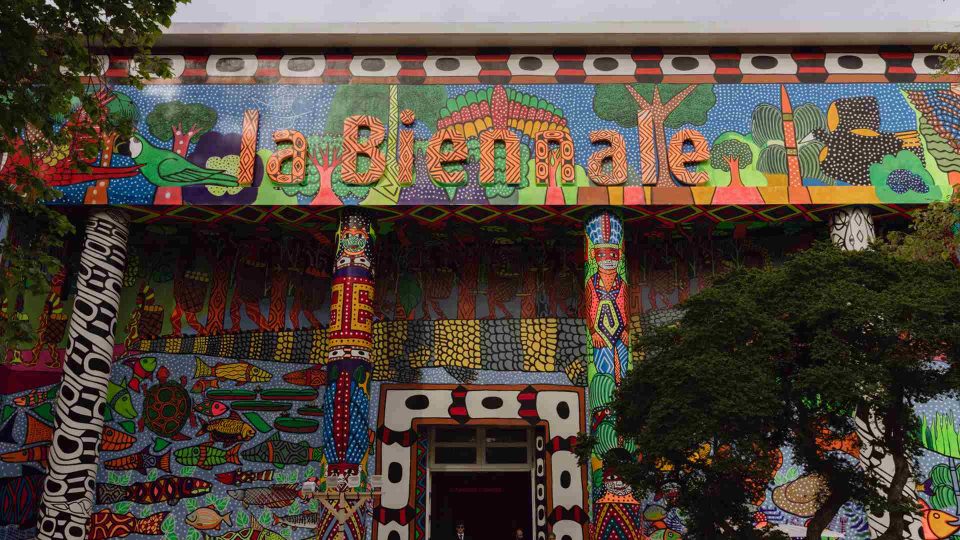
The Meetings on Art return to the Teatro Piccolo Arsenale to explore some of the key themes of Adriano Pedrosa’s Exhibition.
As indigenous art gains increasing traction within the contemporary art world, the challenges faced by artists and how they are represented become important topics of discussion. This panel offers in-depth analyses of specific practices and examines the benefits and discontents of inclusion.
Welcome and introduction by Adriano Pedrosa, and Amanda Carneiro, artistic organiser, 60th International Art Exhibition.
Speakers:
Kássia Borges Karajá, member of the MAHKU collective (Movimento dos Artistas Huni Kuin), one of the participating artist in the 60th International Art Exhibition. Visual artist and indigenous activis, she’s currently a professor at the Federal University of Uberlândia in Minas Gerais, Brazil.
Elvira Espejo Ayca, visual artist, musician, weaver, poet, and narrator of the oral tradition from her native region, ayllu Qaqachaka, Oruro, Bolivia. Currently director of the National Museum of Ethnography and Folklore in La Paz, she was awarded the Goethe Medal (2020), the highest cultural distinction by the government of the Federal Republic of Germany.
Rember Yahuarcani, visual artist, curator, and activist for Indigenous rights and knowledge from the Uitoto Indigenous Nation and the White Heron Clan in Pebas, Loreto, Peru. He has exhibited widely in Latin America, North America, Europe, and Asia since 2003. He is a participating artist in the 60th International Art Exhibition.
Taarati Taiaroa is a Māori curator of Te Ātiawa, Ngāti Tūwharetoa, Ngāti Apa tribal descent. She is based in Ngāmotu, Aotearoa where she holds the position of Assistant Curator Contemporary Māori Art at the Govett-Brewster Art Gallery Len Lye Centre, a contemporary art museum of the Pacific. Her research has focused on Māori exhibition & collection histories, Māori Post-minimalism and the ethics of collaborative practice.